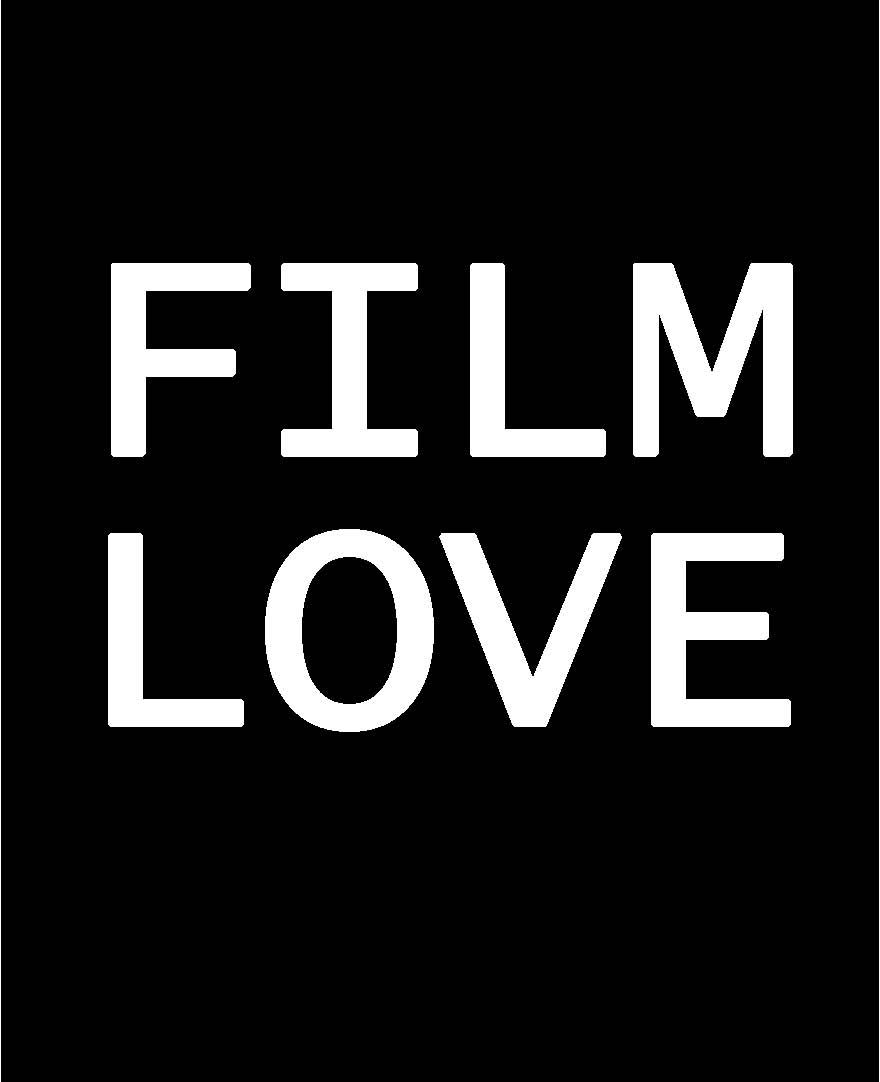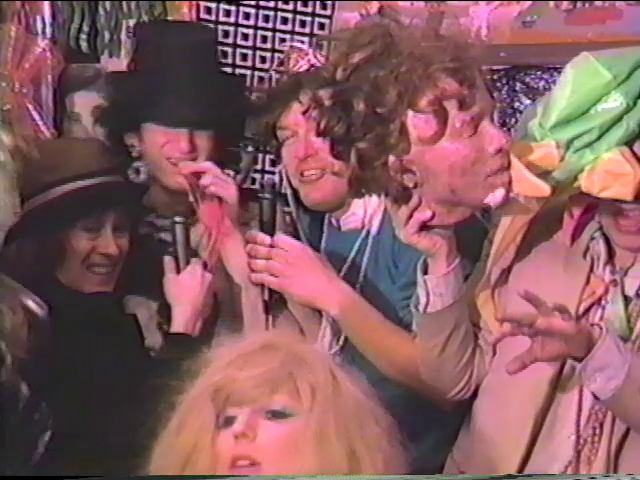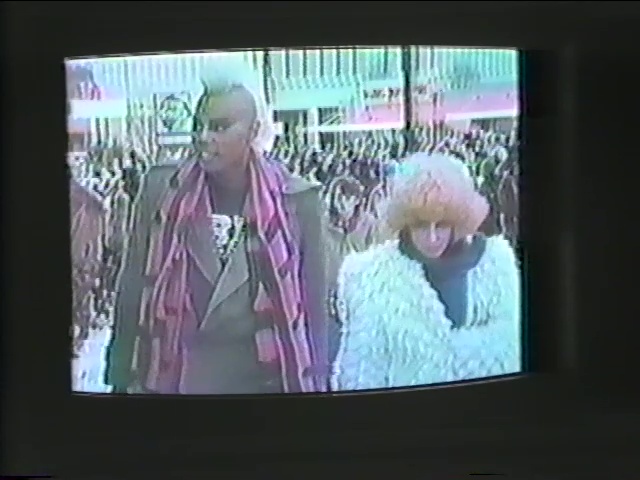

 |
| Potsy Duncan (left), Dick Richards (center), Tom Zarrilli (right), and Lahoma (bottom) on The American Music Show, March 1987 |
How to Live
in the City:
The Story of The American Music Show
#4:
A Day in Forsyth County, a Night at Mardi Gras
(Performance Practice Part 2)
Friday, November 17, 2017
7:00 pm
at Atlanta Contemporary
$8
The fourth screening in Film Love’s
American Music
Show retrospective documents the show’s visionary method of incorporating
performance into a historic public event, and its subversive transformation of
this event through the medium of public access television.
January, 1987:
a march protesting racism in Cumming, Georgia, is violently turned back by local
members of the Ku Klux Klan. The Klan then holds an impromptu rally. A week
later, the marchers return twenty thousand strong and this time the march goes
on.
Two Atlanta drag queens, Lahoma (Jon Witherspoon) and Lizette (Russ Trent), went to the first march
with video camera in hand – and stayed to document the aftermath in close-up
footage. On the next week’s American Music Show – broadcast between the
two marches – Lahoma and Lizette appeared in full drag, showing the video and
annotating the events while in character. They show racist and homophobic
propaganda they collected at the event, including the climactic display of a
Klan t-shirt complete with a subversively outrageous suggestion for how to model
it.
The following week’s episode ups the ante, when American Music
Show singing star and investigative reporter Wanda Peek (the brilliant
Molli Worthington) and Starbooty (a brave RuPaul) descend on the second, more
successful march. Worthington’s flawless comic performance in character in the
midst of this event is a television landmark, while the ever-spectacular RuPaul
attracts both media attention and violent heckling from racists mere yards away.
And characteristically for meta-producer and cameraman Dick Richards, everything
here – certainly including the march itself – was a potential target for satire.
Finally, more of Lahoma and Lizette’s footage, including the Klan
rituals and cross burning they taped, was shown on a subsequent edition of The
American Music Show devoted to Mardi Gras (with an overcrowded Bourbon Street
hilariously replicated in Dick Richards’ Candler Park living room). The footage
is both an important historical document and difficult to confront; but the
show’s incorporation of these images into a talk-show parody within a Mardi Gras
recreation encircles them, transforming our encounter with this material into
something deeper and stranger than standard models of political discourse and
entertainment allow.
Edited clips of these encounters have circulated for
years on Youtube, but Film Love will present the complete episode of Wanda Peek
and Starbooty in Forsyth County, as well as longer portions of the other
episodes as originally broadcast in January and February, 1987. These fuller
segments reveal the crucial context in which the show placed these incendiary
images. They show how this group of performers and producers, empowered by the
availability of public access television and free from the strictures of network
TV and mass culture, took full advantage of their position to suggest another,
risky method of confronting white supremacy: drawing the circle of queerness and
comedy ever wider, to fully incorporate the imagery of hatred – the better to
break it down from the inside.
Atlanta Contemporary
535 Means Street NW, Atlanta, GA, 30318
404.688.1970
http://www.atlantacontemporary.org/

Starbooty (RuPaul) and Wanda Peek (Molli Worthington)
at the Brotherhood March, Forsyth County, Georgia, January 1987
How to Live in the City: The Story of The American Music Show is a Film Love event. The Film Love series provides access to great but rarely seen films, especially important works unavailable on consumer video. Programs are curated and introduced by Andy Ditzler, and feature lively discussion. Through public screenings and events, Film Love preserves the communal viewing experience, provides space for the discussion of film as art, and explores alternative forms of moving image projection and viewing.